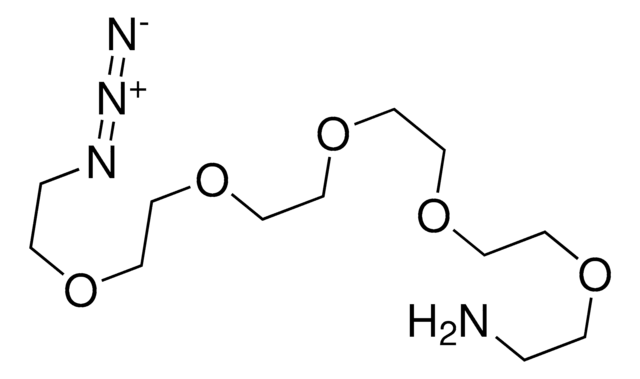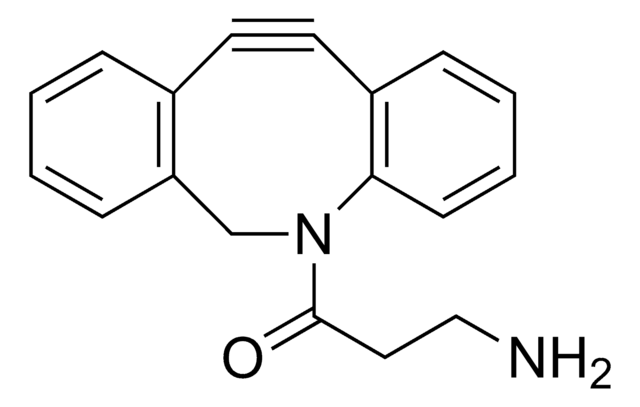901138
14-Azido-3,6,9,12-tetraoxatetradecan-1-amine
Synonym(s):
2-[2-[2-[2-(2-Azidoethoxy)ethoxy]ethoxy]ethoxy]ethanamine
About This Item
Recommended Products
form
liquid
Quality Level
reaction suitability
reagent type: linker
refractive index
n/D 1.45
density
1.10 g/mL
functional group
amine
azide
storage temp.
2-8°C
SMILES string
NCCOCCOCCOCCOCCN=[N+]=[N-]
InChI
1S/C10H22N4O4/c11-1-3-15-5-7-17-9-10-18-8-6-16-4-2-13-14-12/h1-11H2
InChI key
ZMBGKXBIVYXREN-UHFFFAOYSA-N
Related Categories
Application
Storage Class Code
10 - Combustible liquids
WGK
WGK 3
Flash Point(F)
230.0 °F
Flash Point(C)
110 °C
Choose from one of the most recent versions:
Already Own This Product?
Find documentation for the products that you have recently purchased in the Document Library.
Customers Also Viewed
Articles
Choosing the right crosslinker for your biochemical or bioconjugation research can be challenging. Our selection guide can help you find the perfect match for your applications.
Our team of scientists has experience in all areas of research including Life Science, Material Science, Chemical Synthesis, Chromatography, Analytical and many others.
Contact Technical Service



![2-[2-(2-Azidoethoxy)ethoxy]ethanol solution ~0.5 M in tert-butyl methyl ether](/deepweb/assets/sigmaaldrich/product/structures/374/007/eea7ca74-41e4-4aac-af71-c93c37ec0a5a/640/eea7ca74-41e4-4aac-af71-c93c37ec0a5a.png)









